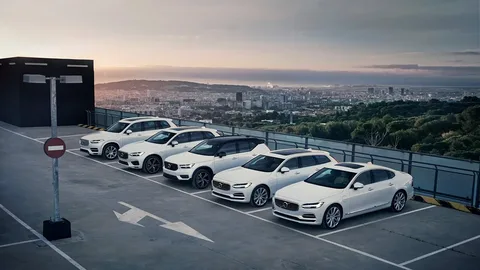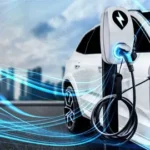Volvo Car is in the limelight because of the global scale reduction of its workforce, symbolizing severe times in the automotive industry. The decision by Volvo Car to search for an extinction of 3,000 jobs, 7% of the workforce, comes after a sharp 60% plunge in operating profits and a shocking 73% drop in net income in Q1 2025. Buffered by heavier competition in the industry with weak EV demand, high production costs, and disruption in global trade, this Volvo Car layoff downsizing is part of a larger SEK 18 billion ($1.9 billion) cost-saving measure to try and keep her head above water.
The strategic reorganization primarily targets white-collar and office-based jobs, especially in Sweden, where 1,200 jobs will be eliminated and 1,000 consultant jobs cancelled. Even while it stays true to its plans for electrification, the financial squeeze prompted Volvo Car to press the pause button and reevaluate its operational model. With Geely Holding in its corner, the firm now also faces U.S. tariffs and a weakening market for cars in Europe. The need to fix its cash flow and reposition itself for sustainable profitability has never been more urgent.
Read More: Alphabet Stock Gift: Sergey Brin Bold Tech Philanthropy Move
The Strategy for Cuts at Volvo Car
At SEK 18 billion, the cost-cutting project by Volvo Car is among the Swift attempts to rise from the lows of its recent profit fall. The idea is to make Volvo Car leaner and more financially nimble for an increasingly regionalized-and-volatile market. Some larger part of these cuts will come from reductions of about 3,000 jobs. It including around 1,200 white-collar employees and consultants in Sweden alone; the rest will be scattered in the global locations.
While expressing sorrow, Håkan Samuelsson pointed out that under the present circumstances, such a decision was imperative.”The automotive industry is in a highly dynamic phase of disruption right now. For the Volvo Car to survive, we must be even more effective and reduce our costs structurally,” he added. Volvo Car’s second-quarter earnings will include a one-time charge of SEK 1.5 billion ($140 million) related to the layoffs and restructuring activities.
Global Operations Under Pressure from Trade & EV Slowdown
Signs of global economic headwinds are very visible from the restructuring at Volvo Car. The electric vehicles markets slow down and the trade tensions heightened. Volvo Car is now under heavy pressure, especially with a threat of a 50% tariff on cars exported from Europe to the U.S. This directly affects the profitability of its EX30 EV model produced in Belgium.
The restructuring at Volvo Car does not, however, indicate that R&D will move to China. Notwithstanding its ties to Geely Holding. Instead, it aims to streamline operations and reduce overlaps across the Geely group. Nevertheless, with the European base being the most affected. It concerns are increasingly being raised about the future of the Swedish and Belgian workforce at Volvo Cars. The company has begun talks with unions and has informed Swedish authorities. Marking the beginning of a turbulent chapter in the company’s storied history.
Also Read: Tariff Threat Rocks Markets, Apple & EU Suffer
What This Means for the Automotive Industry
The move by Volvo Car is a single episode but one case among the entire travails the automotive group is facing around the globe. The rising cost of raw materials, inflation, and dwindling demand for electric vehicles have pushed automakers into strategic pivots. Distant from the incident previously would be a later gimmick, in which job losses and restraints on operations are pursued in the name of long-term sustainability.
With the withdrawal of its financial guidance for 2025 and 2026. Volvo Car signaled that it is entering a phase of uncertainty. For sure, the melodic line for the automotive industry is reframing rapidly. Those with an ability to bend will be able to see the light of day. Volvo Car’s attempt for a more regionally focused and electrified strategy may turn out to be an audacious gesture. But ultimately its success will come down to how fast the company can recalibrate to changing consumer sentiment and trading disruptions.
The road ahead for Volvo Car is still encumbered with doubt. However, these actions may be an attempt to forge a path for others cutting a passage through similar storms. All the while, Volvo Car remains committed to electrification, sustainability, and long-term innovation. Underlying pillars of tomorrow’s mobility that, despite some cuts and turbulence in its operation. Should allow it to forge its viable future.
For More Trending Business News, Follow Us 10xtimes News






